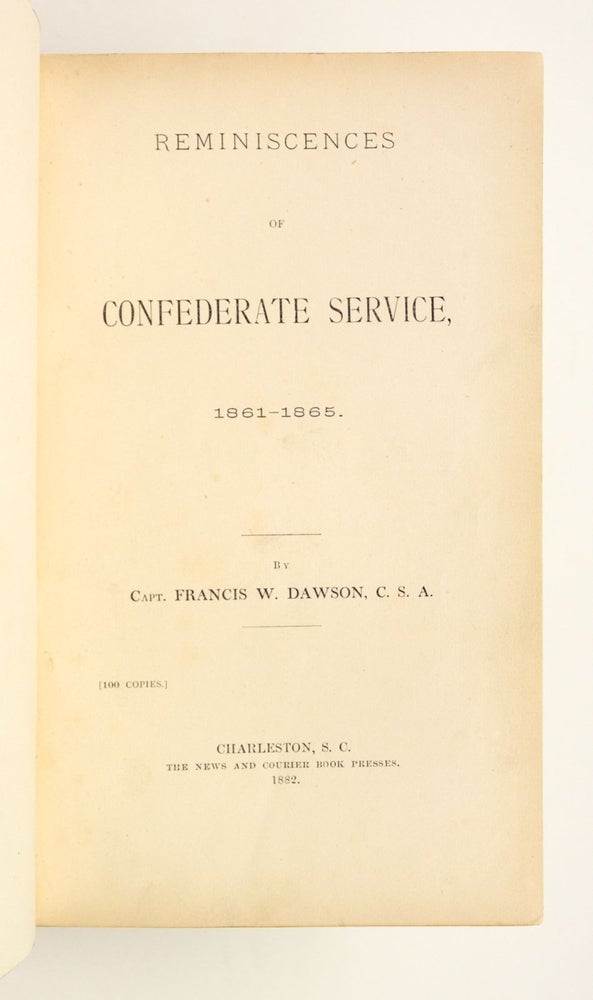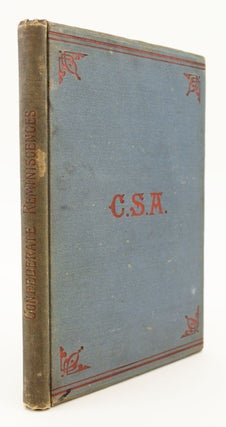REMINISCENCES OF CONFEDERATE SERVICE, 1861-1865.
(Charleston, S.C. The News and Courier Book Press, 1882). 240 x 150 mm. (9 3/8 x 5 7/8"). 180 pp. ONE OF 100 COPIES printed for Private Circulation.
Publisher's blue-gray cloth, covers stamped in red with thick and thin rules at head and foot, floral ornaments at corners, and the letters "C. S. A." at center, smooth spine lettered in red, endpapers renewed. Howes D-151. ◆Spine darkened and with a small rubbed patch, covers a little soiled and discolored, minor rubbing to extremities, but the binding solid, and quite an excellent, clean copy internally, with only the most trivial imperfections.
This is quite a scarce account of an Englishman's service in the Confederate Army during the Civil War. Captain Francis Dawson (1840-89) was born in London as Austin John Reeks. After attending college, he embarked on a Grand Tour of the Continent before the Southern cause for secession captured his romantic imagination. He determined in 1861 to travel to the American South to be part of the fight. In Southampton, England, he signed aboard the blockade-running Confederate ship "Nashville," sailing to Beaufort, N.C. From there, he travelled to the Southern capital of Richmond, Va., where he joined Gen. Longstreet's corps of the Army of Northern Virginia, taking "Francis Dawson" as his nom de guerre. His account of his service blends somber (but never gory) accounts of battle (he witnessed the disaster of Pickett's charge at Gettysburg) with lighthearted anecdotes of interactions with civilians met on the march, kindnesses of ladies on both sides of the conflict, and officers feasting on "possum" that was in fact stolen (or rather, "captured") pig. After the war, he settled in Charleston, S.C., where he married and joined the staff of the local paper. He became heavily involved in local and state politics, sometimes taking unpopular stands, such as supporting African American candidates, denouncing lynching, and crusading against dueling. Gallant to the end, he was shot and killed by a man he confronted for making "dishonorable advances" to the Dawson family's governess. Published at the urging of his wife, diarist Sarah Morgan Dawson, and intended only for distribution to friends and former comrades, this is one of the rarest memoirs of the Civil War; we find just two other copies at auction, the most recent selling in 1996 for $4,370 all in. (ST16805)
Price: $9,500.00


